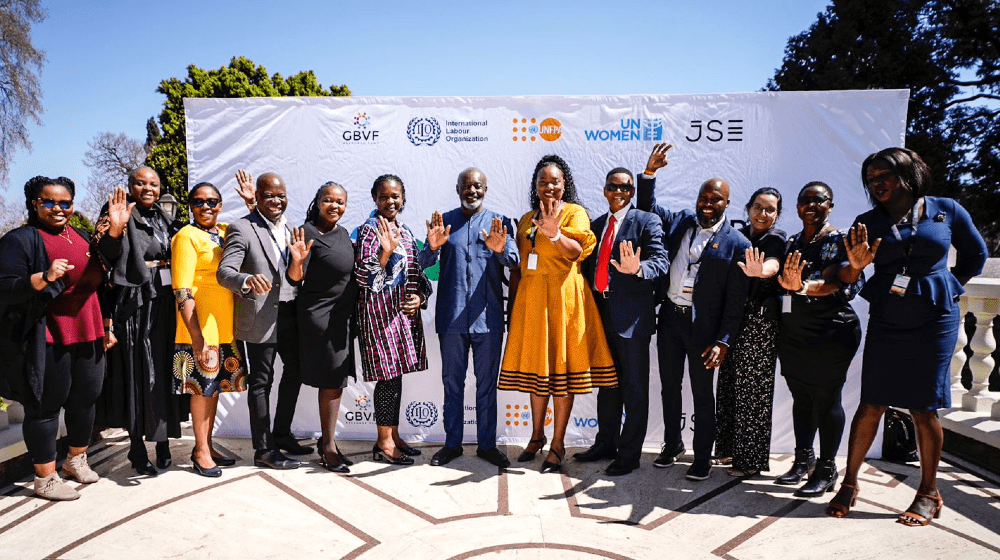In a groundbreaking initiative to address Gender-Based Violence and Harassment (GBVH) in the workplace, the GBVF Response Fund (the Fund), in partnership with the Presidency, the Johannesburg Stock Exchange (JSE), the United Nations Population Fund (UNFPA), the International Labour Organization (ILO), and UN Women, announced the formation of the Private Sector Coalition Against Gender-Based Violence and Harassment (PSC).
The Private Sector Coalition was introduced during a symposium in Johannesburg on 27 August 2024, which brought together CEOs, senior leaders from various industries, and key stakeholders. The coalition aims to transform how the private sector in South Africa addresses and prevents GBVH, directly impacting the well-being of millions of employees.
Several CEOs and senior leaders across various industries attended and expressly stated their support for the PSC, including Nolitha Fakude, chairman of Anglo American’s management board in South Africa, Sitho Mdlalose, CEO of Vodacom South Africa; Shirley Machaba, CEO of PwC South Africa; and SPAR Group’s sustainability executive, Kevin O’Brien.
The formation of the PSC follows the Second Presidential Summit on GBVF held in November 2022, where the need for decisive private sector action was emphasized. GBVH has severe economic and social repercussions, as highlighted by the 2014 KPMG report, “Too Costly to Ignore – The Economic Impact of Gender-Based Violence in South Africa.” This national initiative is set to create safer, more inclusive workplaces across the country.
Advocate Shamila Batohi, National Prosecuting Authority, shed light on the various services available at Thuthuzela Care Centres, noting that there are currently 65 Thuthuzela Care Centres across the country in urban, peri-urban, and rural locations and more needed to be established throughout the country.
The United Nations, through its agencies ILO, UNFPA, and UN Women, supported the formation the Coalition, offering global experience, technical expertise, and a shared commitment to gender equality. Nelson Muffuh, the United Nations Resident Coordinator, highlighted the transformative power of such partnerships, stating, “We have witnessed the impact that partnerships like this can have in other parts of the world, and we are confident we can achieve similar success in South Africa.”
The PSC will adopt the Maturity Model Framework, a strategic approach aimed at creating a zero-tolerance culture towards GBVH. Recognizing the urgent need for collective action to combat GBV and foster safer work environments, UNFPA has leveraged its extensive experience and expertise to mobilize the private sector. By joining forces with industry leaders and key stakeholders, UNFPA has facilitated the creation of a robust coalition dedicated to addressing and preventing GBV in the workplace, thus advancing the global agenda for gender equality and workplace safety.
“This framework will help companies align their operations with global standards while addressing local challenges.” stated Ziyanda Ngoma, UNFPA Communications, Advocacy and Partnership Analyst. It will also empower survivors and enable businesses to tackle GBVH in a focused and transparent manner.
In conclusion, the PSC provides a collaborative platform where companies can lead the charge in eliminating GBVH from the workplace. By implementing policies aligned with conventions like C190, businesses can demonstrate leadership, denounce violence and inequality, and address the persistent issues of toxic masculinity and patriarchy. This initiative is a critical step towards ensuring that women are safe both at home and work, which is essential for the prosperity of the nation.


